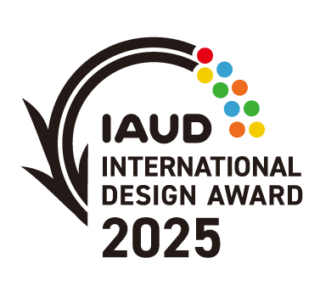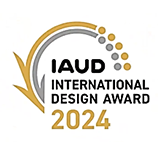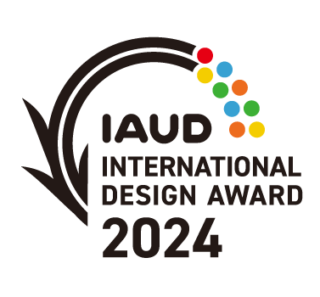2024.07.18
IAUD International Design Award Citations 2018 CHAIRS INTRODUCTION & FULL CITATIONS
2019.03.04 Updated
CHAIRMAN’S INTRODUCTION
The Chair of IAUD International Design Award 2018 Selection Committee
Professor Emeritus, Royal College of Art, UK

Through the Major Awards – at Grand, Gold and Silver level – the judges are seeking to promote and commend high-quality examples of Universal Design practice, methodology and delivery, and of company-wide commitment to Universal Design. IAUD International Design Awards are given to all entries that meet or genuinely strive to deliver the key UD qualities of user-friendliness, social and environmental sustainability, inclusion, and knowledge transfer. Above all the Selection Committee is looking for clear evidence of user-engagement and dialogue in the design process – a fundamental requirement of Universal Design – and in the few cases where such evidence is lacking no award is given.
We saw fewer entries for this year’s International Design Awards, but were impressed by the overall quality of each design and the methodology behind it. There was a particularly strong showing from major Japanese companies, very clearly demonstrating the extent to which they and their design teams and studios have internalized the key ideas, concepts and methodologies of user-centered inclusive design. That UD is now so well-embedded in the Japanese corporate sector demonstrates how effective IAUD and its International Design Awards have been in furthering the ambitious goals of HRH the late Prince Tomohito of Mikasa, who was instrumental in the founding of IAUD and devoted much of his energies to it.
This year, the one Grand and eleven Gold Awards demonstrate long-term commitment to improving the quality of life of people of all ages and abilities, while a notable collection Silver and ordinary award -winning entries once again meet the high standards in Universal Design and user-consultation that typify the IAUD International Design Awards.
But there is always room for improvement and in coming years the jury hopes to see a more entries from small companies, young designers and architects, and individual innovators, along with industry/academic partnerships and research-driven projects. To this end the jury strongly feels the need to encourage a diverse range of entries, especially from outside Japan. For it is to the younger generations that we must look for the innovation and lateral thinking to complement the steady advance in user-friendly inclusive design being made by larger companies, that will drive UD thinking and practice in new and uncharted directions. To this end, the jury will, with IAUD, be seeking ways to encourage and support greater participation from across the globe, and in particular from those sectors that have previously been under-represented.
CITATIONS of IAUD International Design Awards 2018
Announcement of IAUD International Design Award 2018 Winners
JUDGING CRITERIA
The main selection concept was “whether the concept of universal design (UD) has been applied, and whether superior activities have been proposed or carried out as their outcome.” Judging was based on both practice of concept and activities derived from it. The judging criteria and essential goals mentioned in application requirements were also given importance in the evaluation process.
The past eight years of the awards have seen sustained progress, and to maintain this momentum the Judging Panel is looking for entries that:
- push the boundaries of Universal Design in new and exciting directions;
- prioritise high-quality user-based research, in particular direct engagement with disabled users and others at risk of being excluded from the market;
- consciously avoid exclusivity from innovations and new technologies, in particular for specific groups of users;
- go beyond conventional ‘usability’ by identifying specific problems relating to diverse groups of users and delivering solutions to them;
- demonstrate long-term corporate commitment to UD, supported by a company-wide vision and plan to ensure continuing improvement;
- are supported by honest and informative promotional material.
Essential Goals of the IAUD International Design Awards Program:
- Sustainable and Universal: The entry presents concepts and practices suitable for creating a sustainable, mutualistic society.
- Diversity and Inclusion: The entry shows an understanding of the diversity of traditions, cultures, lifestyles and people, and does not exclude minorities but rather expressly includes them; and thus contributes to realizing a qualitatively rich and happy way of life.
- Safe and Secure Society: The entry contributes to the construction of mechanisms, systems and morals appropriate to a society that protects human rights and respects the humanity of every individual.
- Spontaneous and Sustainable Dialogue: The entry serves to build ongoing exchanges and relationships between corporations, design practioners and clients, government, research institutions, NPOs, and citizens.
- Passing-on of Knowledge and Skills to the Next Generation: Through disseminating universal design and knowledge about it, the entry serves to cultivate individuals suited to lead the next generation.
IAUD International Design Award 2018 Selection Committee
- The Chair of the Selection Committee: Roger Coleman (Professor Emeritus of the Royal College of Art, UK)
- Vice Chair of the Selection Committee: Fumikazu Masuda (President, open house inc., Japan)
- The Members of the Selection Committee:
- Francesc Aragall (President, Design for All Foundation, Spain)
- Thomas Bade (CEO, Institute for Universal Design, Germany)
- Valerie Fletcher (Executive Director, Institute for Human-Centered Design, USA)
- Toshiharu Arai (Professor Emeritus, Kanazawa College of Art, Japan)
- Keiji Kawahara (Professor, Head of Department of Design, School of Media and Design / Graduate School in Media and Design, Nagoya University of Arts and Sciences; Executive Director, IAUD, Japan)
GRAND AWARD
- In the category of Social Design
- FUJITSU LIMITED / FUJITSU DESIGN LIMITED receive the Grand Award for:
Universal Disaster Prevention Solution supporting consistently from prevention headquarters to residents.

An integrated system that brings together real-time information on environmental factors along with status updates in disaster situations, thereby supporting and assisting key personnel in rapid and informed decision-making, in particular regarding evacuation orders. It also acts as a source of reliable information to local residents, thus significantly enhancing risk and damage-reduction and offering security and reassurance to vulnerable people. The system has potential applications in disaster-prone regions across the world as an effective way of facilitating communication between local rescue services and delivering critical and timely live information to experts and residents alike.
The jury believes this entry:
Could set a global standard in protecting people from natural disasters. It is a well thought-through and implemented system for facilitating and managing disaster warning, response and limitation, tested, evaluated and refined in real-life situations and in collaboration with local government in Japan and overseas.
GOLD AWARDS (11)
- In the category of Housing and Architecture
- Foundation of Universal Design Education receives a Gold Award for:
The Certification of Universal Design for Residential Space in Taiwan
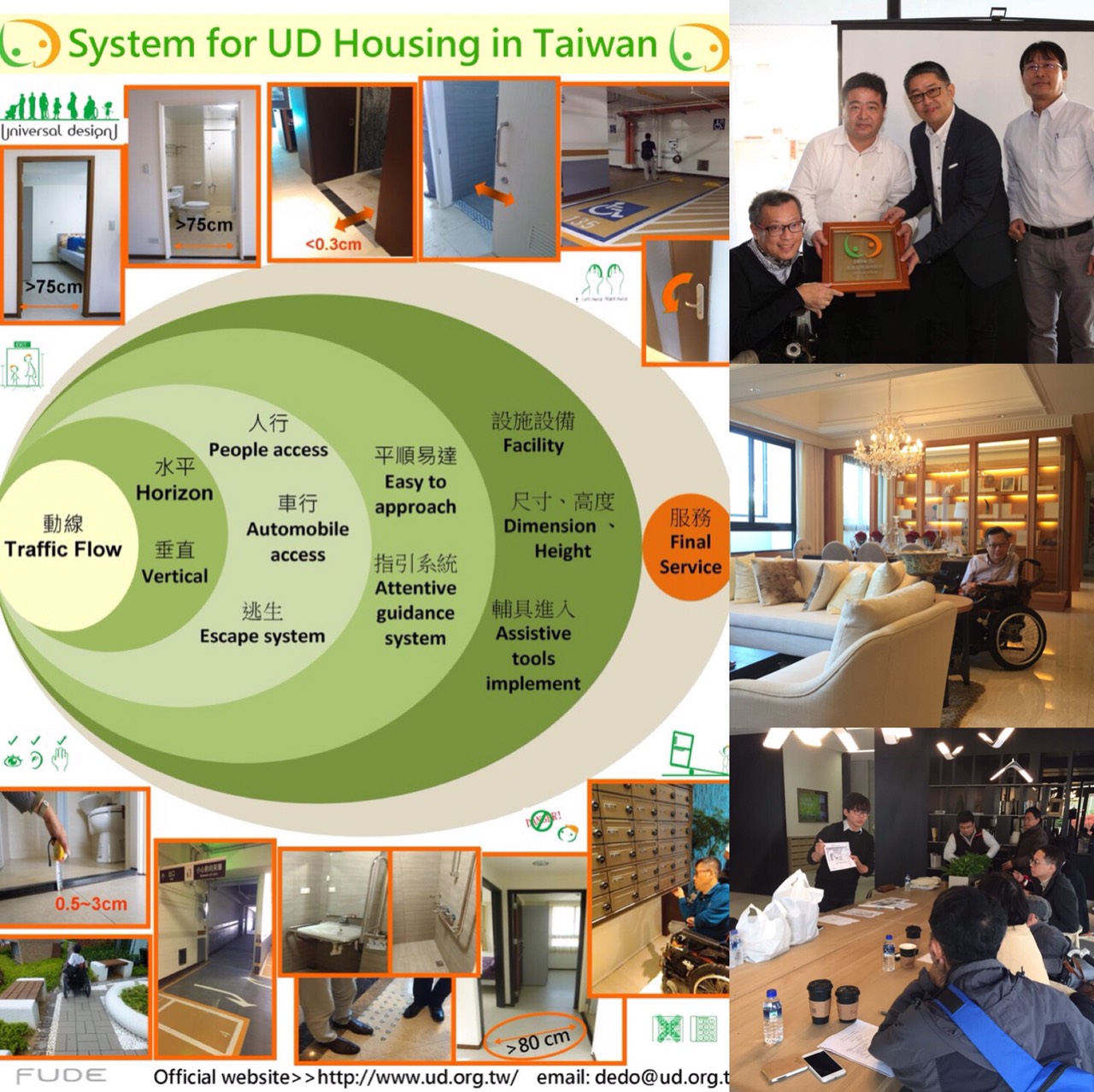
Since 2014, the UDE Foundation has successfully promoted the adoption of its Universal Design Certification Mark for Residential Space by government departments in Taiwan. Based on UD principles and core concepts of Design-For-All, the UDE certification process was been developed through a program of iterative consultation, counseling and assessment. To date 10,000 applications have been filed and over 7,000 dwellings have been certified, including over 4,000 social housing units. The impact on housing design and the housing market in Taiwan has been significant and far-reaching.
The jury applauded this entry as:
A project conceived developed and promoted by a tireless and dedicated advocate with a disability, who has been a focused and effective champion of Universal Design in residential accommodation in Taiwan. The resultant UD Certification Mark is based on a smart set of requirements that include the concerns of the widest range of users with regard to safety, services and external contexts. It sets a benchmark in UD residential certification.
- In the category of Healthcare & Welfare Design
- Panasonic Corporation receives a Gold Award for:
Walking-exercise robot
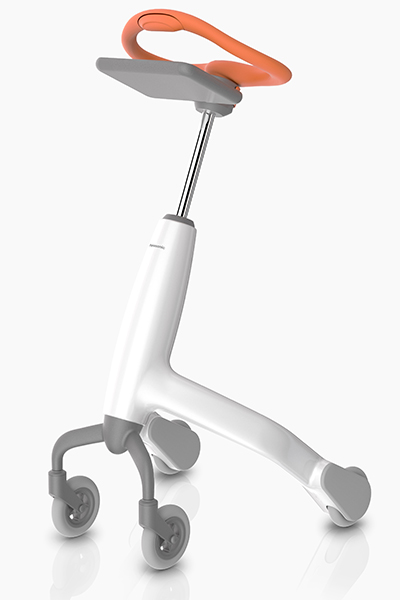
In the context of population ageing, and in particular with regard to Japan’s super-aged society, keeping people active and independent and in their own homes for as long as possible has become an important priority. This walking support tool addresses these issues by using AI technologies to encourage and enable suitable walking with a sense of reassurance. It has been designed specifically to look like more than just a walker, and is aimed at encouraging people to actively want to walk.
The jury described the walking-exercise robot as:
An innovation to help people with walking difficulties and prevent falling that opens up a new field of design for rehabilitation and daily living.
A better walker to replace traditional walking frames has been a long time coming, and this design meets the need extremely well. Primarily targeted at rehabilitation facilities, the walker was developed via an extensive process, and verified in collaboration with healthcare and rehabilitation professionals, which gave rise to iterative, user-aware design improvements.
- In the category of Healthcare & Welfare Design
- Baxter Ltd. receives a Gold Award for:
Supporting patients on Peritoneal Dialysis at Home: Home PD System KAGUYA
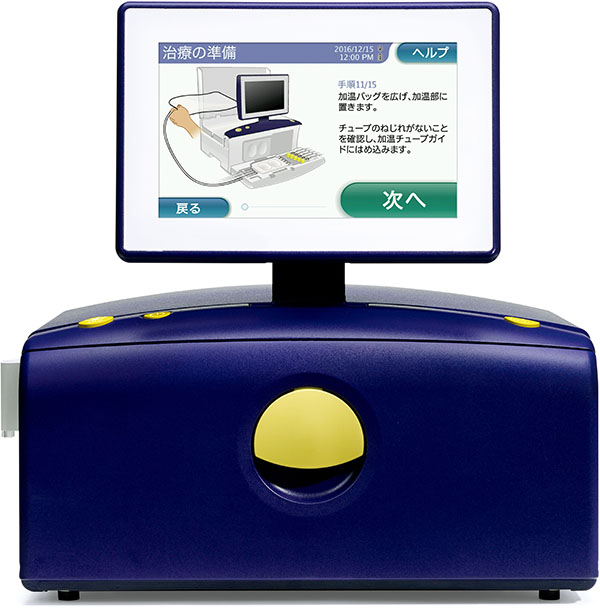
KAGUYA is a medical device that allows patients to carry out peritoneal dialysis in their own homes, and it consists of a design that enables operation even by elderly patients. The intention is to ensure the widespread use of independent treatment outside hospital by offering safe and anxiety-free treatment at home.
The jury commended this entry as:
Good design to provide better usability for both patients and carers.
Peritoneal Dialysis in the home has been available for 30 years but is not popular despite the rising need for dialysis. This home treatment system offers a strong set of responses to the problem of consumer disinterest with a voice guide, sensitivity to reduced sight and visual acuity, remote monitoring and live access to medical personnel.
- In the category of Education
- Kagawa Prefectural Board of Education / Shodoshima Town Board of Education / Tonosho Town Board of Education / National University Corporation Kagawa University / FUJITSU LIMITED / FUJITSU DESIGN LIMITED receive a Gold Award for:
An empirical study on remote support of special education in distant and remote areas, aiming to improve expertise of teachers and supporters for inclusive education.
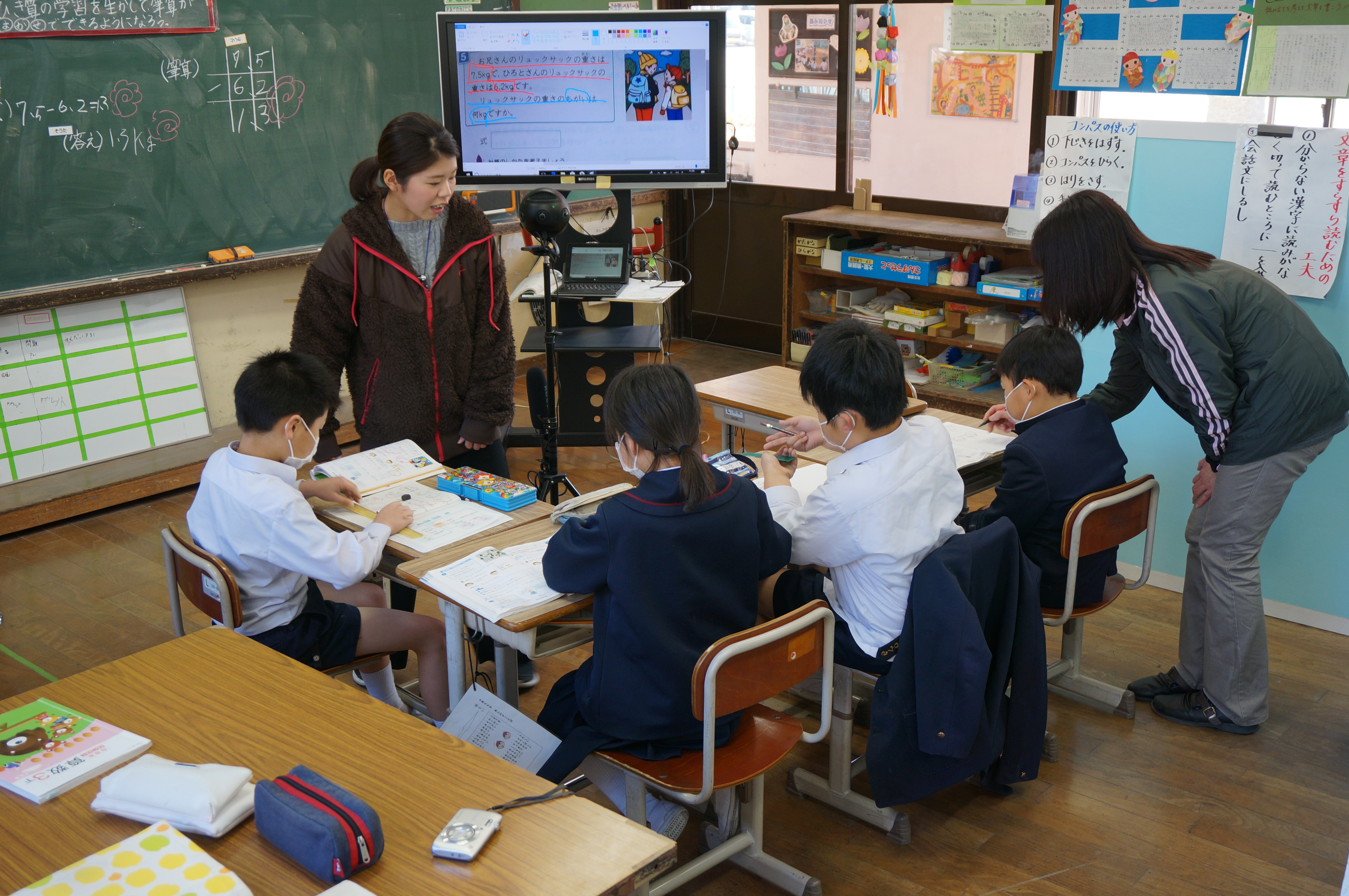
An imaginative, multi-disciplinary study to better understand what teachers need and how to deliver appropriate support to them in light of the growing move to inclusive education. State-of-the-art virtual reality and conferencing technologies are combined to deliver distance learning, tuition and advice to special-needs teachers in remote locations, demonstrating the potential benefits of immersive experience of the realities of autism.
The jury saw this entry as:
A smart response to the Japanese goal of increased integration in education for children with disabilities, and a big step forward in connecting people living and working in remote areas. A multi-faceted study aimed at delivering inclusive education training to teachers in difficult to access or remote locations, informed by lived experience of significant childhood disability.
- In the category of Housing Equipment Design
- Panasonic Corporation receives a Gold Award for:
Smile Bathtub
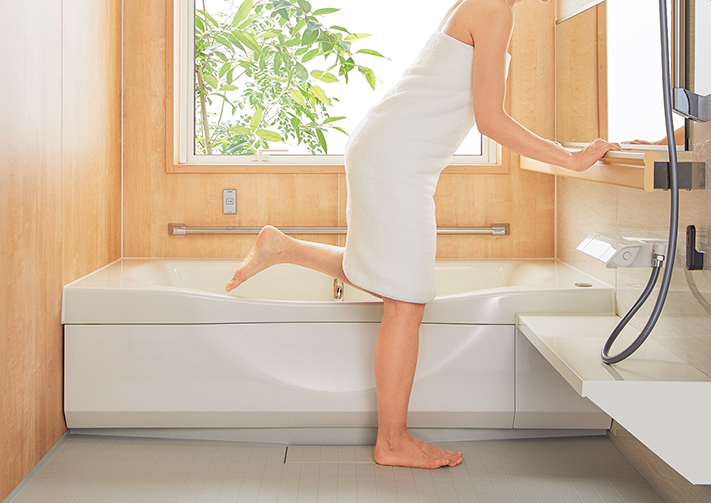
A bathtub that is easy to get into and out of, that elderly people can use safely, and that all family members can enjoy using. Getting in and out of the bath can be difficult, especially for older people, and is a cause of many accidents To address this problem the edge of the Smile Bathtub is lower and thinner in the middle, making it easier to get into the bath from either a standing or seated position. Aesthetically elegant, this enabling design does not stigmatize while ensuring comfort and safety.
The jury described this entry as:
A classical universal design with great appeal, and a smart solution for anyone using bathtub. By wearing simulation suits to restrict their movement and flexibility the designers of the Smile Bathtub achieved a better understanding the limitations of older people. The insight gained has lead to simple, user-friendly design improvements combined with elegance and style to create a genuinely inclusive product for the modern bathroom.
- In the category of Transportation Design
- Clarion Co., Ltd. / TACHI-S CO., LTD. receive a Gold Award for
"InfoSeat" Driving Support system that enables safer driving
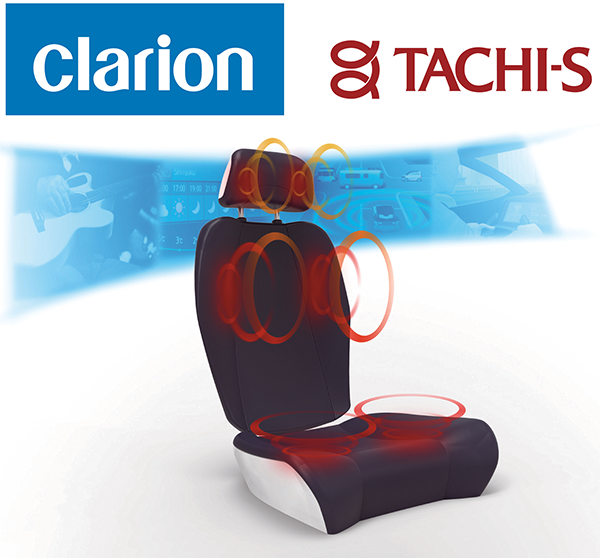
The "InfoSeat" is designed to allow increasingly intelligent vehicles to communicate with the driver in a range of unobtrusive and intuitive ways, providing vibrating and audible warnings along with timely information. Not only is this is effective for regular drivers, it has the potential to be personalized in ways to greatly assist older drivers and drivers with impaired levels of perception.
The jury applauded this entry as:
A safety measure to prevent drowsy driving, which is on the increase among senior drivers. By enabling greater levels of interaction between intelligent vehicles and their drivers the "InfoSeat" has significant potential to reduce accidents among older drivers through timely tactile and auditory prompts.
- In the category of Public Transport Design
- Mitsubishi Electric Corporation receives a Gold Award for:
Applying UD concepts to onboard guidance by using full-color LED displays in railcars
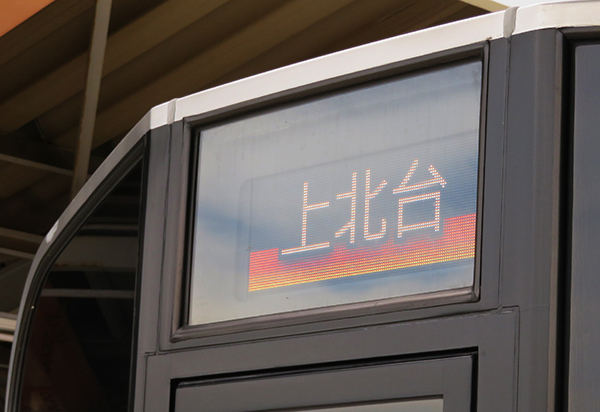
A range of products that very successfully exploit the properties of LEDs by applying the concepts of Color Universal Design to full-color information displays on and within railway carriages. Combined with complementary UD concepts such as multilingual displays, pictograms for non-Japanese people and intuitive guidance through new modes of expression, the resulting full-color panels provide timely information in a highly user-friendly form.
The jury recognized this entry as an example of:
Good technology, underpinned by a carefully researched and thorough product development process with clearly set goals. This has delivered a significant advance in multilingual color LED displays for railcars. On-line surveys were used to check and validate pictograms, and as part of the program the chosen font was redrawn to precisely match the pixel structure of the display panels. The resulting system makes travelling much easier for both Japanese and non-Japanese passengers.
- In the category of Product Design
- Mitsubishi Electric Corporation receives a Gold Award for:
A small refrigerator for hospital patient use
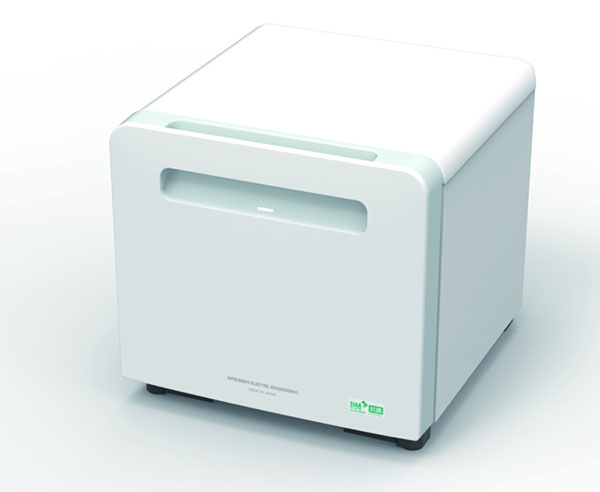
A personal refrigerator for hospital inpatients designed to integrate discretely with a bedside unit. This small, easy-to-use refrigerator is very quiet in use, making it suitable for vulnerable patients while allowing them access to refreshing food and drink on demand. Its quiet aesthetic blends unobtrusively with care environments, and it is easy for staff to keep clean.
The jury described this entry as:
A practical and discrete solution that allows hospital patients to access and use a small refrigerator whilst being cared for in bed. In-depth interviews with patients, clinicians and carers informed both the functional design and ergonomics of this personal refrigerator for hospital patients, and also influenced its aesthetics. The result is a highly user-friendly design meeting the requirements of patients, their visitors, and care staff.
- In the category of Interaction Design
- Mitsubishi Electric Corporation / Honda Access Corporation receive a Gold Award for:
Car navigation series: Gathers InterNavi Premium VXM-187VFNi, VXM-187VFEi
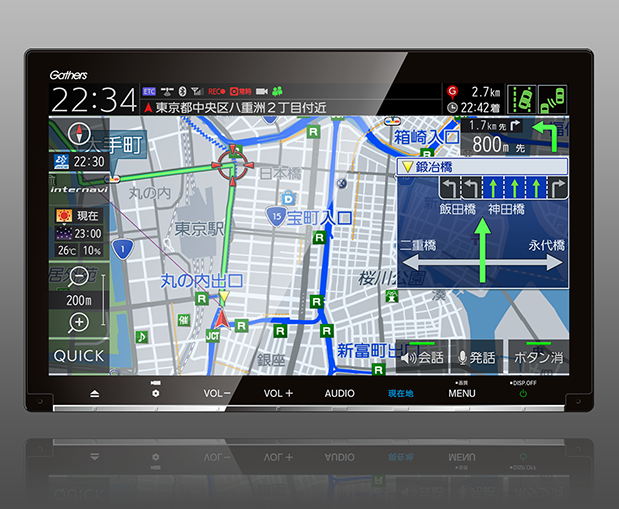
Close consultation with a range of end users has led to a series of user-friendly improvements to an existing in-car navigation system. For example, the UD map version is now the default setting, the status bar is located on the top of the screen display to allow drivers to check critical information with minimal eye movement, and the media ports are illuminated as one of several measures to improve operability in the dark.
The jury commented:
Good technology and well-researched, user-based design improvements to this in-car navigation system have effectively reduced distraction. The driver is now more able to focus on and understand critical directional and safety information presented in a user-friendly format.
- In the category of Fashion
- Shiseido Co Ltd. receives a Gold Award for:
PRIOR

PRIOR has been designed to meet the express needs and preferences of older women. Consideration was given to stress-free and natural shapes, color tones and layouts to deliver a highly user-friendly product range without offending its targeted demographic, who tend to dislike receiving special treatment based on their advancing years. Subtle, age and ability-friendly design elements and details make the range of products and its packaging easy to access and use without drawing attention to the fact, thereby encouraging word-of-mouth recommendation and avoiding heavy-handed promotion.
The jury found this entry:
A timely and well-conceived example of product development and branding, addressing the cosmetic needs of an aging female population. This comprehensive brand of cosmetics targeting older women in subtle and appropriate ways developed on the basis of a survey of some 6,500 women over the age of 50. With it, Shiseido has achieved a long-standing ambition of delivering range of cosmetics that meets the specific needs and wishes of older women in a truly age-friendly and non-discriminatory way.
- In the category of Communication Design
- FUJITSU LIMITED / FUJITSU DESIGN LIMITED receive a Gold Award for:
CHORDSHIP - Provide effective communication between users and ICT systems
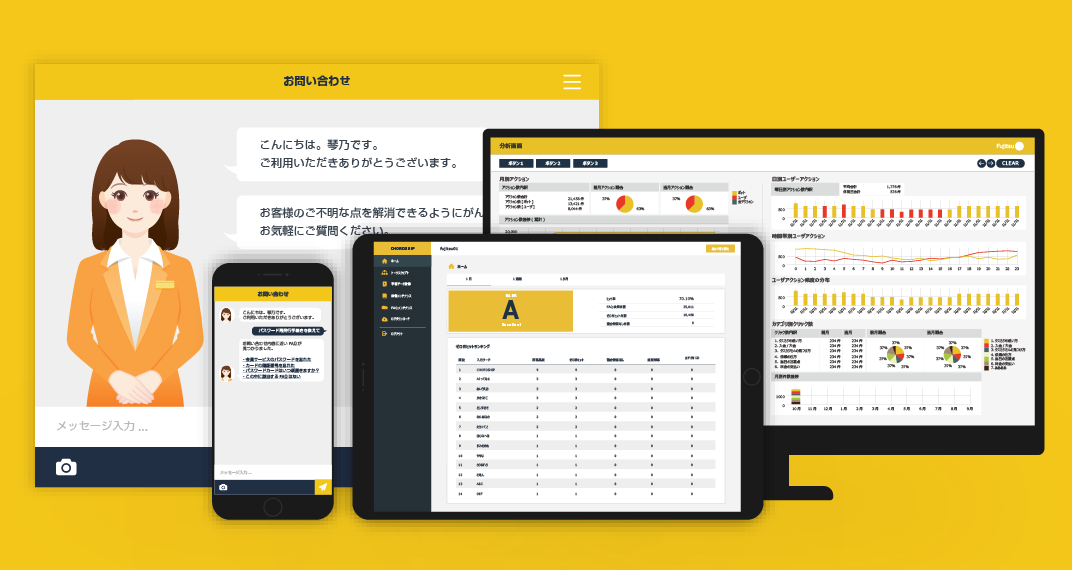
CHORDSHIP is an 'intelligent assistant' that enables service providers to deliver high quality interaction experiences to customers. It is designed and programmed to communicate with a wide range of users regardless of differing literacy levels in a very natural conversational style. By seamless linking a virtual assistant with human advisors as and when necessary, this telephone-based system is able to handle exceptional questions along with more routine queries and conversations.
The jury praised this entry as:
A dialogue-oriented interface that will provide ease of accessibility to all users. A promising use of artificial intelligence to improve virtual and phone experiences between consumers and customer services. This intelligent assistant, which is still in development, could have the potential of reducing infuriating interactions in these stressful encounters that we all know so well.
SILVER AWARDS (4)
- In the category of Design for Everyday Use and Emergency Situations
- Panasonic Corporation receives a Silver Award for:
Mighty Multi Light
A compact and powerful LED light that is useful during everyday life and that can be relied upon in times of need. With six brightness levels, it can be used as a flashlight and as a lantern. Compact and lightweight, it has a generous, firm grip that takes the small hands of children and people with reduced grip and dexterity into consideration. One-touch operation and an adaptable handle and mount allow for multi-functionality.
The jury commented:
Refined usability in a universally designed handy light. An addition to Panasonic's 'always at hand in times of need' range of products, this represents a further refinement of the company's excellent work in flexible portable lighting. Nice attention to one touch operation - even with an elbow – and a tripod option adds photographic capability.
- In the category of Product Design
- Mitsubishi Electric Corporation receives a Silver Award for:
Cordless Stick Vacuum Cleaner JXH
Based on a set of clearly defined design criteria and ergonomic considerations, the JXH is a lightweight, easy-to-use, cordless stick vacuum cleaner. The charger stand is integrated into an attractive design, enabling users to clean fully and reliably with simple operations. One-touch controls are a key feature of this easy-to-use vacuum cleaner.
The jury saw in this entry:
A good example of continuous product improvement through UD, delivering enhanced usability and convenience. Vacuum cleaner options from Mitsubishi just get more and more evolved. A small but highly diverse user-group worked with the designers to develop an efficient, flexible product that is highly user-friendly.
- In the category of System Design
- Panasonic Corporation receives a Silver Award for:
Automated Transport System
An automatic transportation system for moving heavy loads around warehouses, designed and conceived to reduce the burden on workers and help prevent accidents. The design of this low profile and durable automated warehouse transport system was informed by exhaustive workplace surveys. It can be used with existing roll-box palettes, is autonomously operated and equipped with laser sensors to avoid people and obstacles. Simple and safe to operate it does away with the usual marks designating traveling routes as these are no longer needed.
The jury described this entry as:
A powerful proposal in the form of an industrial labor saving transportation system. In response to identified user-needs in terms of workplace requirements, workforce demographic changes and managerial/operative concerns, Panasonic has developed a highly flexible, well-considered and user-friendly system for moving loads around warehousing and other workplaces.
- In the category of Communication Design
- FUJITSU CLIENT COMPUTING LIMITED / FUJITSU DESIGN LIMITED receive a Silver Award for:
Itsumo Assist Fukumaro
Itsumo Assist Fukumaro is a computer-based personal assistant realized in full motion video (FMV) designed to make life at home more convenient and fun. It is easy to use by making simple voice requests, for example, to check the weather, search the web, play music and videos, or operate household electronics. The intention is to expand the possibilities of personal computer usage, in particular for older people and children who are not accustomed to computers.
The jury found this entry to be:
An innovative and engaging presentation of an intelligent assistant using a comical character as the interface mediator. Interview-based research informed the creation of this non-gendered ‘cute’ persona designed to appeal across the ages, and its implementation in user-friendly application of artificial intelligence aimed at children, adults and in particular older people.
IAUD International Design Awards 2018 (6)
- In the category of Product Design
- Mitsubishi Electric Corporation receives an IAUD International Design Award for:
MX Series Refrigerator with Vegetable Compartment in the Middle
A six-door refrigerator with the vegetable compartment located in the centrally for easy access, saving unnecessary bending and streamlining movement around the kitchen when cooking. The refrigerator also features a function for freezing food in a soft enough state to be cut by a kitchen knife, offering flexibility in food planning, preparation, and consumption.
The jury praised this entry as:
An example of continuous improvement through UD. Building on the philosophy of its ‘RakuRaku Assist’ initiative and responding to a detailed consumer survey Mitsubishi has developed this six-door kitchen refrigerator. The combination of user-friendly detailing and advanced insulating materials makes for a versatile addition to Mitsubishi’s existing kitchen range.
- In the category of Product Design
- Mitsubishi Electric Corporation receives an IAUD International Design Award for:
Development of a Remote Control for Air Conditioners
As air conditioners have become increasingly multifunctional user interfaces have become increasingly complex and difficult to use. Based on a 2,000+ survey Mitsubishi have developed a more user-friendly air conditioner remote with a clear separation between buttons for changing settings and buttons for normal operation. The generous LCD screen automatically changes to display the optimal information for each style of use.
The jury felt this entry offered:
A significant and user-friendly improvement through the simplification of a complicated operation interface. A good research-base, and iterative prototype testing/validation lead to user-friendly improvements and a simpler, more intuitive controller and interface for air conditioner equipment in the home.
- In the category of Product Design
- Mitsubishi Electric Corporation receives an IAUD International Design Award for:
Jet Towel MINI
Based on a set of clearly defined design criteria and ergonomic considerations, the Jet Towel MINI is a hand dryer designed for tight spaces in the restrooms. The nozzles and sensors are located on the front edge of the unit so that users do not have to insert their hands too deeply into the unit. Multi-height installation is also possible to make it easier for children and shorter people to use.
The jury found:
Good evidence of RakuRaku influence in this new model of a popular hand drying system. There are many electric hand drying options currently available but troubling problems persist with cleaning and sanitary use that this new design addresses. It has a big potential global impact as the careful attention to use by differently sized people, coupled with a slim profile and easy cleaning features, help to meet an international need.
- In the category of Product Design
- Mitsubishi Electric Corporation receives an IAUD International Design Award for:
A photo printer for commercial use
A photo printer for convenience stores and printing centers around the world. As such products are frequently used by part-time staff unfamiliar with their operation, fundamental design improvements were required to deliver the necessary ease of use and user-friendliness. The structure and operation of the product are dramatically improved to ensure that anyone, regardless of familiarity with the product, can easily and properly operate and maintain it.
The jury applauded this entry as :
An excellent example of easy-to-operate professional equipment. Major user-friendly design improvements based on extensive experimentation and iterative testing of mock-ups, later verified in user trials make the changing of ink and paper intuitive and worry-free.
- In the category of Education
- FUJITSU CLIENT COMPUTING LIMITED / FUJITSU DESIGN LIMITED receive an IAUD International Design Award for:
HAJIMETENO JIBUN PASOKON (My first personal computer)
A rugged, child-friendly laptop/personal computer aimed at encouraging information literacy among children. The twin goals of the product development team were to enable children to have fun while learning and at the same time provide parents with a sense of security. In particular ‘my first computer’ addresses the growing trend towards computer learning, particularly in schools and classrooms.
The jury described this entry as:
A good design for beginners. By 2020 computer-based learning, including computer programming, will be compulsory in Japanese schools and a central component in child education. This rugged, child-friendly laptop/PC is designed to meet the need for appropriate equipment at affordable prices.
- In the category of Education
- FUJITSU CLIENT COMPUTING LIMITED / FUJITSU DESIGN LIMITED receive an IAUD International Design Award for:
FMV Kids - For children learning programming for the first time.
Fujitsu has improved it's FMV Kids website in light of the increased demand for programming education running up to 2020, when that becomes part of school curricula. In addition to offering personal computer and Internet know-how, Fujitsu has expanded the computer-learning materials available with the goal of enabling children to have fun learning programming. In addition, the website provides information on ICT education trends for parents and guardians.
The jury saw this entry as:
A well-conceived, designed and developed education kit for schoolchildren. Encouraging those who already have a keen interest in video games to begin to understand something about computer programming is a smart way to introduce what can otherwise be a dry and difficult subject. Through it's FMV Kids website Fujitsu has embarked on finding out how best to encourage that interest among young people.
CITATIONS of IAUD International Design Awards 2018
Announcement of IAUD International Design Award 2018 Winners





